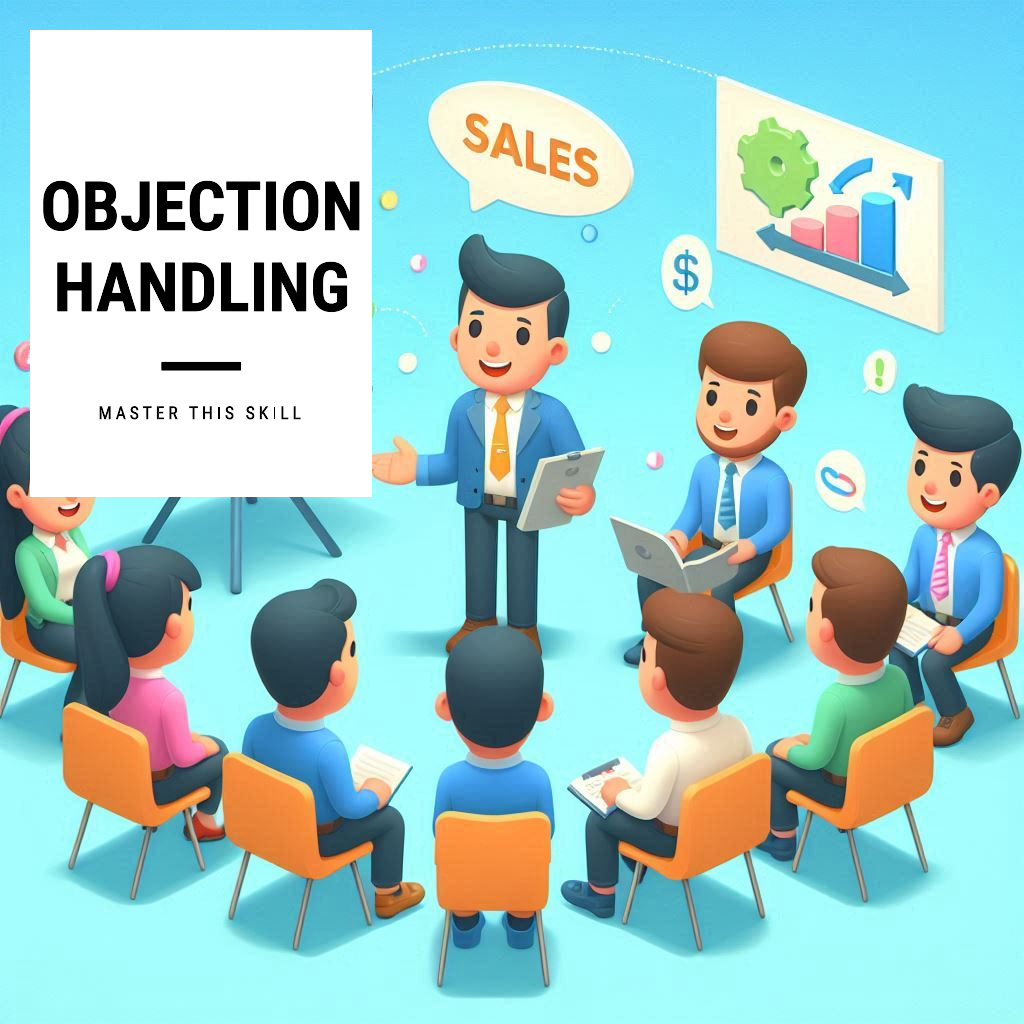Objection handling sales skills are a vital part of any salesperson’s training. In fact, many experts in sales believe a sale doesn’t start until the customer gives some objections. Handling sales objections should be viewed as a normal part of any sales conversation. It is just another skill to be mastered as part of any sales process.
With your sales mindset fully tuned, you see any sales objection as an opportunity to learn more about the customer’s needs and to then open up a simple sales conversation with some pointed questions or a personalized value proposition.
Handling Sales Objections
So, here are some techniques and tips on objection handling in sales conversations.
Technique 1: The 3F Model.
Feel, Felt, and Found
Example: I understand how you feel; lots of my customers have felt this way, but they found out by doing x, y, or z they [name the outcome] ……………………….
Technique 2. Defuse
Example: It’s great you are happy with your existing process. I’m not trying to sell you anything; I’m more interested in understanding your business in case we can help you sometime in the future. can I ask you… …………………
Technique 3. Redirect
Example: I appreciate that you have no budget right now; I know that lots of my customers face challenges with the purchasing process for [insert your product/solutions]. So, they plan in advance. How does that work with your budget constraints?
Technique 4. Challenge
Example: You have no budget now because you don’t see [my solution] as a priority, or your budget is currently tied up?
Not a priority—see technique 1 above.
Budget tied up—how will that hamper your ability to [list the key problem you solve and include some urgent factor]
OR
I accept what you are saying; however, if by “no budget” you mean no budget for [my solution], leaving budget aside, what would it take for you to at least explore the results I know I can deliver for you?
Overcoming Sales Objections
To help you handle sales objections in the real world, we have listed some common customer objections below.
First up is “The Status Quo sales objection.” The biggest competition in selling isn’t your competition but the customers’ preference for not changing. The “happy with what I have” sales objection is a resistance to change, or they are happy in their status quo position. The 3F model and defuse techniques work well here.
This sales objection usually goes like this: We’re happy with our current supplier and aren’t looking for anything else.
1. Answer: That’s great; if they are delivering for you within your budgets and criteria, then I completely understand. I’m not asking you to give me your business, but if anything did go wrong in the future, what criteria will you use to select an alternative supplier? Perhaps if you knew a little more about what we do, I might be able to earn some of your business if ever your current supplier lets you down? Would you like to see what we offer over a quick 10-minute call?
2. Answer: I completely understand; like lots of decisions, you probably moved to your current supplier for a reason. The world of [my solution/technology/market] keeps changing, not to mention the need to [name a pain point] or reduce costs. That’s why we [company name] [call out your 2- to 3-line value proposition for this specific customer, so it must be personalized]. Quick question: what would it take to be added as an alternative supplier in case anything ever went wrong?
3. Answer: Great to hear. What is it they are delivering for you that shuts out anyone else trying to win your custom?
4. Answer: That is fine; I’m not trying to elbow out anyone you have built a relationship with and is delivering for you. But like everything in business, things evolve and change, so when was the last time you considered reviewing other options for [name your solution]?
5. Answer: I understand that you feel no need to change; in fact, the vast majority of our customers felt the same way until they found out how using our [name your solution] to [your 2- to 3-line value proposition]. Can I ask you quickly, if you could improve one thing when it comes to [the problem you are solving], what would it be?
The "Send Me An Email" Sales Objection
The next sales objection is the “send me an email.” Is this an objection, a genuine call for information, or a red herring to get you off the phone?
Does this sound familiar? Can you send me an email?
1. Answer: Sure. What is your email address?What information can I provide you with that you’d find valuable? [continue with more discovery questions that you can highlight the answer to in the follow-up email.]
2. Answer: Of course. Just so I can meet your expectations with what to email you, can I ask what your concerns or challenges are around [name the problem you are solving]?
3. Answer: I’m more than happy to email you our information, but I want you to know that I’m not trying to sell you anything, as I don’t know if your company is a good fit for our [name your solution plus benefits]. What is your view on [ask an insightful discovery question]?
4. Answer: Sure, just give me your email address. In order to know a little more about our company and solutions, what information do you need to see from me for us to continue a conversation in a bit more depth?

The No Budget Sales Objection
Another common objection-handling situation is the “No budget available.” If this sales objection happens early in a sales conversation or during a discovery call, then refer to the status quo objection and techniques listed above. The other approach is the reality that they have zero budget right now!!
The prospect says, “I don’t have any budget for [your product or solution].”
1. Answer: I completely understand. Can I ask how you allocate your budgets and when your new budget gets approved?
2. Answer: That is no issue; I’m more interested in understanding your business than selling anything. I really want to open a dialogue with you to give you some valuable insights without taking up too much of your time. [Ask a deep discovery question that you can answer and give the customer an “Aha” moment.]
The Pricing Sales Objection
Then we come to the “better price elsewhere” objection. Buyers decide on price when they can’t see the difference between two products. Research shows that (apart from low-regret decisions) price is never the number one deciding factor. Pricing in the more complex or potentially high-regret decision usually comes in as the third or fourth factor.
1. Answer: You obviously have concerns about the value my product/solution can bring to your business. Can I ask you what or whom you are comparing me against? [focus on the outcomes and your points of differentiation; do not haggle on price, as they just may need reinforcing on Why You.]
2. Answer: Is the price the only thing getting in the way of you placing an order with me? [When asking this question, you must get a full “yes commitment” answer]. So, if we can agree on a pricing structure [not a discount; the pricing structure could be how they pay for it] today, do I have your business?
Objection Handling Wrap-Up
There are many, many more objection-handling techniques or answers than those outlined here. Objection handling sales skills training is a key sale skill every salesperson must master to be successful at selling or cold calling. We hope some of the techniques and tips on objection handling will help you improve your progress in any sales conversation. Remember, sales objections should be planned for in your sales process or sales training, and you should be prepared to handle them in every conversation you have with a prospect or customer.


